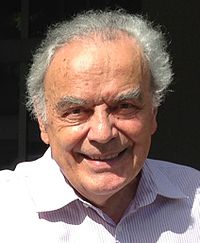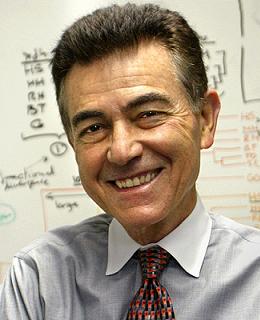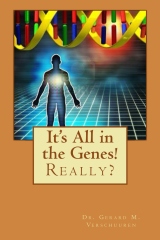Summary
“It’s all in the genes” is one of those statements that you may hear almost daily on radio and TV, on the internet, in your own circle of friends and colleagues. It is one of those explain-it-all statements. I used it myself for a while when studying and later teaching human genetics. Like all other geneticists, I was brought up with the prevailing paradigm of genetics. The term paradigm, which Thomas Kuhn introduced, stands for a collection of rules on how to solve scientific puzzles—in this case, genetic puzzles.
Because of their training, scientists are typically unable to articulate the precise nature of the paradigm in which they work, until a need arises to become aware of the general laws, simplified models, metaphysical assumptions, and methodological principles involved in their paradigm. I think I have reached a turning point somewhere in my life. That is when I changed my motto of “It’s all in the genes” into “It’s in the genes, but genes do not answer all our questions.”
This book gives fair attention to both parts of my new motto: “It’s all in the genes! – Really?” On the one hand, I will show the reader how powerful genes, and their DNA, can be — for we need to acknowledge that “It’s in the genes.” On the other hand, I also explain why genes do not tell us the entire story — for we should also recognize that “genes do not answer all our questions.” The latter part is a more philosophical reflection on the first part. Biological facts do not make sense without a philosophical reflection. Our genes are like a hand of cards we are dealt, but we can play them differently.
This book is not as deterministic as other books on genetics, and yet it gives genetics its due with up-to-date, easy-accessible information for those interested in genomics (The science journal Nature listed “Personal Genomics Goes Main-stream” as a top news story of 2008). But it also discusses explicitly why mind issues such as morality, rationality, free will, and religion cannot be in the genes.
| |
|
Reviews

| "The critical discussion by Dr. G.M. Verschuuren of selected examples for acquired insights into the complexity of life represents a welcome contribution to inform a wider public on questions and at least partial answers dealt with by fundamental and applied research in the life sciences".
— Professor Werner Arber
Nobel Laureate in Medicine 1978
Biozentrum, Department of Microbiology
University of Basel, Switzerland
|

| "Where does morality come from? What about religion and rationality? Do we really have free will? If you want answers to these questions you will want to read IT’S ALL IN THE GENES! - REALLY? You will also learn much about genetics, genomics, DNA and much more, all in a style that is informative, clear and enjoyable."
— Francisco J. Ayala
Former Professor of Biological Sciences
University of California, Irvine.
|

| "There is no such thing as a perfect genome. We always knew. But in the era of exome and genome sequencing, we can actually see it, right in front of our own eyes. Each one of us carries hundreds to thousands of variants or mutations. What a humbling experience. The consequences of most of these we don't yet understand. And then, beyond biology, there is more. What makes us human? Where does biology end, and where does philosophy begin? Gerard Verschuuren presents an intelligent book, which will educate, stimulate, provoke, and inspire."
— Christian P. Schaaf, MD, PhD, FACMG
Assistant Professor, Molecular and Human Genetics,
Baylor College of Medicine, Jan and Dan Duncan Neurological Research Institute, Texas Children's Hospital
|

| IT’S ALL IN THE GENES! - REALLY? is a finely honed counterpoint to the genes-as-destiny perspective that often underlies media reports on genetics. Verschuuren argues that genes never act in isolation, but always in concert with a person’s environment, and that there is a great deal more to human life than biology alone. So when you hear someone say that it’s all in our genes, your immediate response should be "Really?"
— Daniel Hartl
Higgins Professor of Biology,
Hartl Laboratory, Harvard University
|

| "I am convinced that a book like this is needed."
— Daniel Justin Fairbanks
Interim Dean of Science & Health,
Professor of Biology, Utah Valley University
|
Dr. Verschuuren makes some excellent arguments on behalf of numerous questions that we humans have pondered and debated for perhaps most of the existence of our species. For example, where does morality come from? Where do religion and rationality come from? And what are the roots and limits of human “free will”?
This well-written book provides an overview of recent genetic research and why there is a certain amount of truth to “It’s all in the genes.” Dr. Verschuuren, however, also makes compelling cases, on several fronts, for why he now believes “there is more than genes in life.”
|

|
|
|









